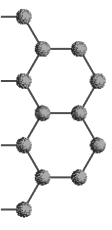ABSTRACT
We are now experiencing the second quantum revolution. After 20 years of extensive research, quantum technology has finally become mature enough to move to industrialization stage. One particular promising quantum technology is quantum computer, which harnesses quantum properties to dramatically enhance the efficiency of daunting computational tasks.
In this talk, I will specifically discuss the quantum computers that are made of bosonic systems, i.e. harmonic oscillators. Conventionally, building a bosonic quantum computer requires: 1) Cool the system to the ground state; 2) Specify two physical states as the encoding basis of a qubit; 3) Implement logic gates by engineering encoding-specific interaction. In our recent works, we show that all of these procedures are sufficient but not necessary. Specifically, we find a unified operation that can implement logic gates for any encoding [1]. Such a "universal coupler" is regarded as a cornerstone of bosonic quantum computation [2], and is recently experimentally realized. Our formalism also permits a new class of encoding that a pure logical qubit is represented by a bosonic mode with arbitrary high thermal excitation [3,4]. This new encoding relaxes the demanding requirement of ground-state cooling, and can better protect the quantum information against environmental noise. Additionally, I will discuss how our techniques can be applied in quantum machine learning
[1] Hoi-Kwan Lau and Martin B. Plenio, Physical Review Letters 117, 100501 (2016)
[2] News & Views, Nature 566, 460-462 (2019)
[3] Hoi-Kwan Lau and Martin B. Plenio, Physical Review A 95, 022303 (2017)
[4] Kevin Marshall, Daniel F. V. James, Alexandru Paler, and Hoi-Kwan Lau, Physical Review A 99, 032345 (2019)
[5] Hoi-Kwan Lau, Raphael Pooser, George Siopsis, Christian Weedbrook, Physical Review Letters 118, 080501 (2017)
BIOGRAPHY
Dr LAU Hoi-Kwan obtained his PhD degree in Physics in 2014 at the University of Toronto. After graduation, he was awarded the Croucher Postdoctoral Fellowship to work at Ulm University, Germany, from 2014-2016. In 2017, Dr. Lau switched to Max Planck Institute for the Physics of Complex Systems, before eventually moved to his current postdoc position in the Institute for Molecular Engineering, University of Chicago. As a theorist, Dr. Lau's research interests cover various aspects of quantum technology. Currently, he focuses on studying the applications and implementations of engineered bosonic quantum systems.
Date & Time
Venue
Chair

